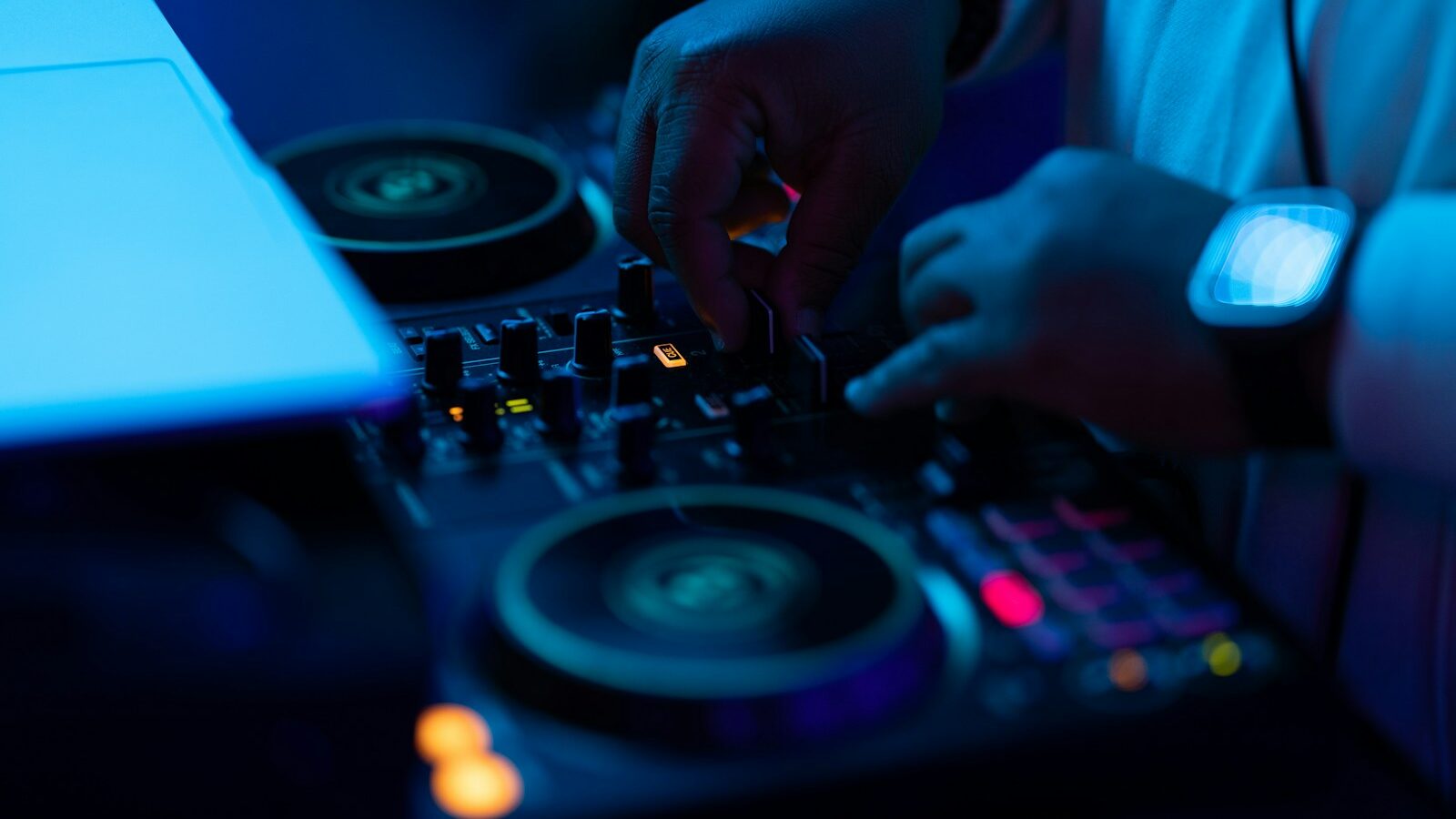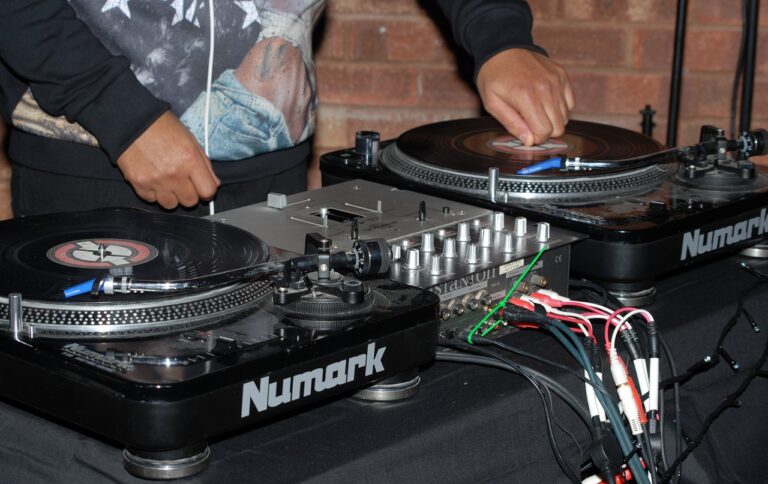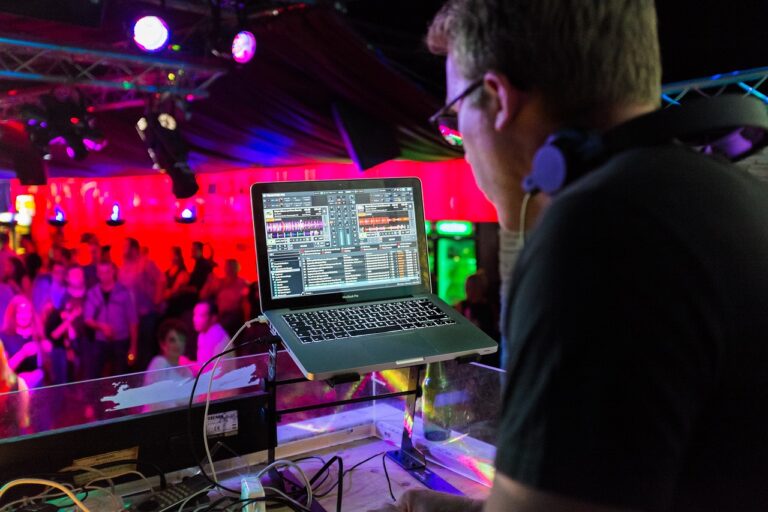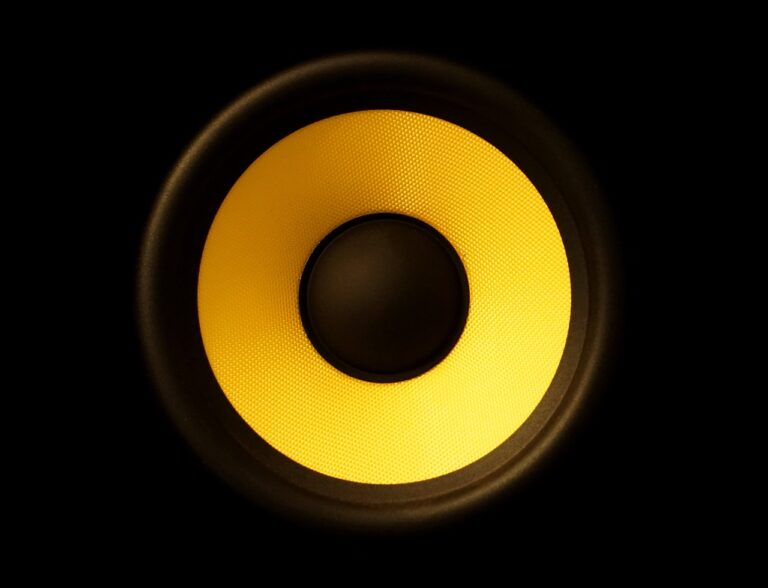
Ever dreamed of commanding a pulsating dance floor, mixing beats that make bodies move? Welcome to the electrifying world of the club DJ! Did you know that top club DJs can earn over £/$100,000 per year?
But, it’s not just about the money – it’s about the rush, the creativity, and the power to shape unforgettable nights. Whether you’re an aspiring beatmaker or just curious about what goes on behind the decks, this guide will break down everything you need to know about being a club DJ in 2024.
Get ready to dive into the beats, the tech, and the scene that keeps the party going all night long!
Essential Gear for the Club DJ
Let’s kick things off with the tools of the trade. As a club DJ, your gear is your instrument, your paintbrush, your magic wand. Here’s what you’ll need to get started:
- DJ Controllers: These are the heart of modern setups. Think of them as the command centre for your musical spaceship. Popular brands like Pioneer, Denon, and Traktor offer a range of options from beginner-friendly to pro-level gear. My first controller was a budget-friendly Numark Mixtrack Pro, and let me tell you, it opened up a whole new world!
- Headphones: Your critical link to the next track. You’ll need a pair that are durable, comfortable for long nights, and provide excellent sound isolation. I swear by my trusty Sennheiser HD-25s – they’ve survived more wild nights than I can count!
- Laptop and Software: The digital tools of the trade. Most DJs use a laptop running software like Serato, Traktor, or Rekordbox. I started with a basic Macbook Air and Serato DJ Lite – it got the job done, and I could practice anywhere.
- USB Drives and Backup Options: Always be prepared! I learned this the hard way when my laptop crashed mid-set. Now I always have at least two USB drives with my entire library. Trust me, it’s a lifesaver!
- Turntables (optional): For vinyl enthusiasts or those looking to incorporate some old-school flair. While not necessary in the digital age, there’s something special about the feel of real vinyl under your fingertips.
Mastering DJ Techniques
Now that we’ve got the gear sorted, let’s talk skills. Being a great club DJ is about more than just pressing play – it’s an art form. Here are the key techniques you’ll need to master:
- Beatmatching: This is the fundamental skill of DJing. It’s all about matching the tempo and rhythms of two tracks to create a seamless transition. In the early days, I’d spend hours in my bedroom practising this, and it’s still the foundation of everything I do.
- EQing and Gain Control: This is how you shape your sound. Learning to balance the highs, mids, and lows of different tracks will make your mixes sound professional and prevent any nasty sonic clashes.
- Phrasing and Song Structure: Understanding how songs are structured helps you create those smooth, natural-sounding transitions. It’s like being a musical storyteller, guiding your audience through the night.
- Effects and Filters: These add flair to your mixes. A well-timed filter sweep or echo out can turn a good transition into a magical moment. Just don’t overdo it – less is often more!
- Reading the Crowd: This might be the most important skill of all. It’s about feeling the energy of the room and knowing exactly what track to play next to keep that energy high. This comes with years of practice and experience.

Building Your Music Library
Your music collection is your arsenal, and keeping it well-stocked and organized is crucial. Here’s how to build a killer library:
- Genre Specialization vs. Versatility: Decide whether you want to be known for a specific sound or be able to play anything. I started as a house DJ but quickly learned the value of versatility for club gigs.
- Music Sourcing: Use a mix of paid music pools, promotional services, and purchases. Beatport and Bandcamp are great for electronic music, while record pools like DJcity cover a wider range of genres.
- Organizing Your Tracks: Develop an efficient system for quick access. I use playlists for different moods and energy levels, and I always prepare a few “lifesaver” tracks for when I need to switch up the vibe quickly.
- Staying Current: Keep up with music trends by following artists and labels on social media, listening to DJ mixes, and attending live events. The scene moves fast, and you don’t want to be the DJ playing last year’s hits!
- Creating Edits and Remixes: Stand out from other DJs by creating your own edits or remixes. It’s a great way to put your stamp on popular tracks and create moments that are unique to your sets.
Navigating the Club Scene
Breaking into the club scene can be tough, but with the right approach, you can make it happen. Here’s how to navigate the world of nightlife:
- Networking: Build relationships with promoters, venue owners, and other DJs. I got my first residency by consistently showing up to a local club, befriending the staff, and offering to play for free on slow nights.
- Social Media Presence: Market yourself as a DJ online. Share mixes of behind-the-scenes content, and engage with your followers. My Soundcloud started as just friends and family, but now it’s a key part of how I get booked for gigs.
- Residencies vs. Guest Spots: Weigh the pros and cons of each. Residencies offer stability and the chance to build a following, while guest spots can help you reach new audiences. I’ve found a mix of both works best for my career.
- Dealing with Difficult Situations: Learn to handle challenging crowds or technical issues gracefully. Technology will go wrong at some point in your career…its inevitable!
- Collaboration Opportunities: Look for chances to work with other DJs and producers. Collaborations can lead to new creative directions and expanded networks.

Technical Aspects of Club Sound Systems
Understanding the technical side of club audio can set you apart from the competition:
- Club Acoustics: Every venue is different. Learn to adapt your sound to the space you’re in. I always arrive early to test the sound and identify any acoustic quirks.
- Working with Sound Engineers: Build a good relationship with the house engineers. They can be your best friends or worst enemies, depending on how you treat them.
- Gain Staging and Volume Management: Learn to balance your levels properly to avoid distortion and protect the audience’s ears (and the equipment).
- Adapting to Different Gear Setups: Be prepared to work with various setups. I’ve played on everything from top-of-the-line Pioneer setups to ancient mixers held together with duct tape.
- Troubleshooting: Know how to quickly solve common technical issues. Nothing kills the vibe faster than extended technical difficulties. Always have back up plans!
The Business Side of Club DJing
Last but not least, let’s talk business. Because at the end of the day, if you want to make this your career, you need to treat it like one:
- Setting Rates and Negotiating Gigs: Know your worth, but be realistic. I started by playing for free to build my reputation, then gradually increased my rates as I became more in demand. Read more on what to charge, here.
- Creating a Professional Press Kit: Have a polished bio, high-quality photos, and sample mixes ready to go. This makes it easy for promoters to book you and promote your gigs.
- Managing Finances and Taxes: Keep track of your income and expenses. Consider hiring an accountant who understands the entertainment industry.
- Insurance and Legal Considerations: Protect yourself and your gear with appropriate insurance. Also, understand the basics of music licensing to avoid legal issues.
- Balancing DJing with Other Work: Many DJs have day jobs, especially when starting out. Time management is crucial – I used to work IT during the day and DJ at night, catching naps whenever I could!
Conclusion: Club DJ 101
Stepping into the world of club DJing is an exhilarating journey that combines passion, skill, and showmanship. From mastering the essential gear to reading a crowd like a pro, you’re now armed with the knowledge to start your path to the DJ booth.
Remember, every great DJ started somewhere – so don’t be afraid to practice, make mistakes, and find your unique style.
So, grab those headphones, fire up those decks, and let’s get this party started! Who knows? Your next mix could be the one that launches you into the DJ stratosphere. Now go out there and make some noise!







